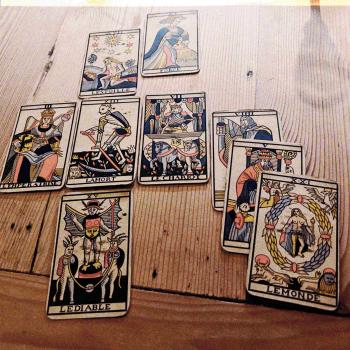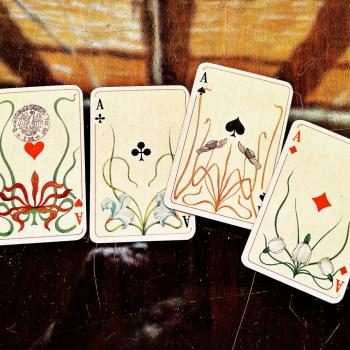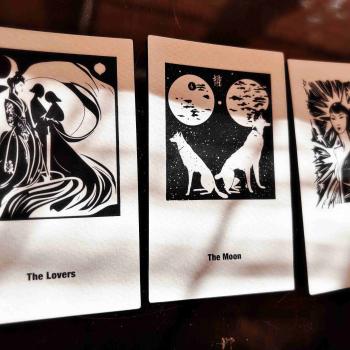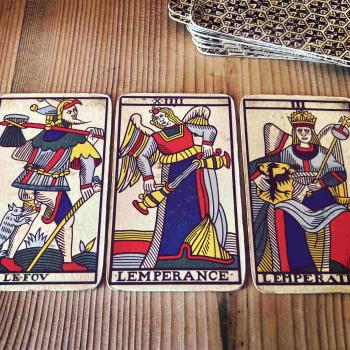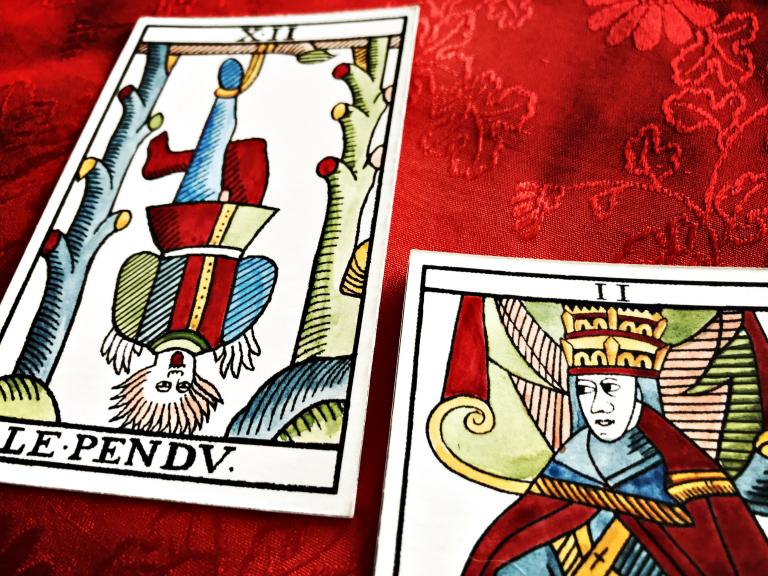
‘His heart is not up to speaking’ is a line that describes a depressive state in the Corpus of Mesopotamian Anti-Witchcraft Rituals.
Of course, back in the days, way back in the days when medical records would be inscribed in cuneiform on clay tablets, what we now call depression was called something else.
Assyriologist Moudhy Al-Rahid wrote a short essay on her journey with depression last year that made me think today of what we do when we divine with he cards for depressive states. While her point was to make her words intentionally fall in the category of self-help – as in, ‘you’re not alone with your condition, the Babylonians suffered from depression too’ – what I’m interested in is not the kind of encouragement that operates with platitudes – even when these can move the heart. Rather, I’m interested in the kind of sanctions we formulate when we differentiate between where exactly we can locate the so-called pain the the soul.
What fascinates me is actually exactly this observation: for some, the Babylonians included, the pain in the soul is in the heart. For others, such as mental health professionals, the pain in the soul is in the head.
Al-Rashid makes the observation that when the ‘heart was not up to speaking’, instead being fraught with anxiety, fearful chills, and the inability to move, this was not a condition stigmatized in Mesopotamia. As a depressive state was considered on par with suffering from a lost love, as far as the Babylonians were concerned, this was an acceptable state of being. When you’re in love, you’re ill par excellence.
Fast forward to our times. If a depressive state is exactly like the state of being in love, why do we think there’s yet a difference?
While we celebrate the depressed people we diagnose with ‘love’, sending them over to the church where the Pope can consecrate their mental illness, we send the depressed people we diagnose with ‘depression’ to the looney bin, where the psychiatrist can medicate for their condition.
Culture is a funny thing, as it demonstrates just how self-enchanting and magical words and labels are. Some cultures sanction depression and celebrate it as a highly desirable state of passion, when depression is called ‘love’. Others see it as a serious physical condition.
Geographically, rationally and spiritually we still have a marked difference between how we consider the pain in the soul, with the West locating it in the psyche, and the East in the heart. If you asked a Zen master, he would say, it’s all in the head, this emotion that makes the heart not up to speaking.
I’m not a medical professional, but I work with psychoanalysis and analytical fortunetelling. I come across a lot of depression that is exactly like the state of being miserably in love. I find this fascinating, and I must admit that the questions that I favor the most are the ones related to love in all its manifestations, loss of love and fear of love being the most common.
Because of inability to manage the depressive state which love entices to, some people get physically ill. Sighing all day for years on end will definitely affect not only the state of the heart but the breath too, so we can infer from this that the mental and the physical are not indissociable. There’s a continuum here that’s worth considering.
What I’m saying today that you might find useful is that next time you read the cards for a depressed person, you might shift the visual metaphors that lock the person in labels such as ‘bi-polar’, ‘obsessive-compulsive’, or ‘addicted’ to the visual metaphors that has some heart in it, as in ‘broken heart’, ‘heartbreak’ or ‘faint of heart’, and see how that might change the course of your reading.
As the end of the day, if you’re a good diviner, as in, ‘a diviner that sits well in neutrality’, you’ll be able to advise according to what a person’s heart or head can take.
For my part, while I acknowledge all sorts of emotions, from love to hatred and other desires and fears in between, I never get too excited, for I also know that what we call emotions are nothing but thoughts in the head. I may think that my need and passion for eating or for having sex is not a mere thought, but more like a drive towards satiation, the simple reality is that if I didn’t have language to name it, ‘I’m hungry for food or for sex’, this very drive or desire wouldn’t even exist. Language constitutes our desires. The more languorous the language, the more depressed the state. The best literature springs out of this source.
And yes, as long as we have romantic novels we can read, we’ll have an opportunity to entertain ourselves with the best mental illness around, when the heart is no longer up to speaking.
Now think of these questions that you might pose to your cards, or on behalf of your clients:
Why is his heart not up to speaking?
If the heart must speak, what words would be adequate?
I myself combined these questions in a reading in the French Cross layout for the broken heart predicament.
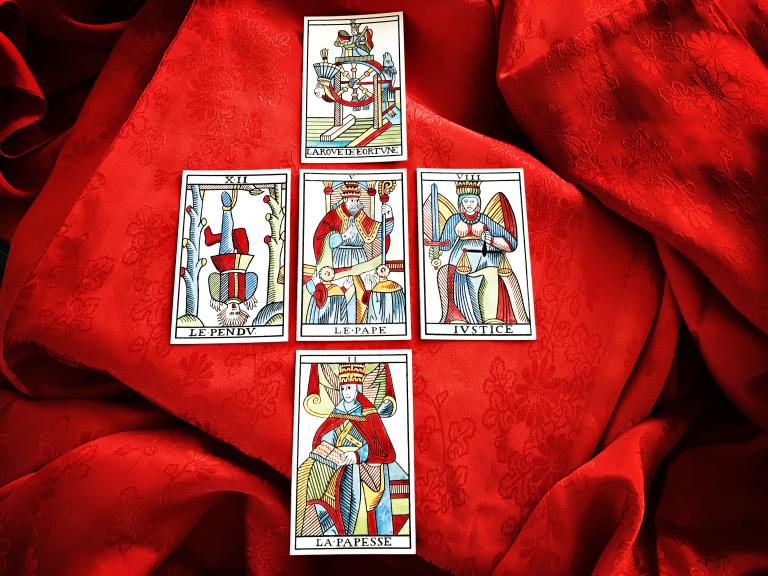
I went like this:
‘His heart was not up to speaking because there was nothing he could do (Hanged Man) – not even the right thing (Justice). Things ran their course (Wheel), leading to kept records (Popess). One might as well teach against the passions of the heart (Pope).’
I leave it up to you now to think as to whether this was a good or a bad message. If all the Popess gets out of it is a record, then guess who’ll be depressed along with the one who can’t do anything about anything. The good news is that there’s solidarity. Oh, but how depressing… What about the heart, the broken heart?
I pushed the card of the Popess upwards, as I felt an insistence to look at the conversations between the heads. ‘Speak to me’, she suddenly seemed to demand, but his heart was not up to speaking… Oh, how depressing.
I’m now beginning to think about just how sublime some depressions are. Without such states, when the heart is not up to speaking, what on earth would we divine about, or write about?
♠
Stay in the loop for cartomantic activities.








